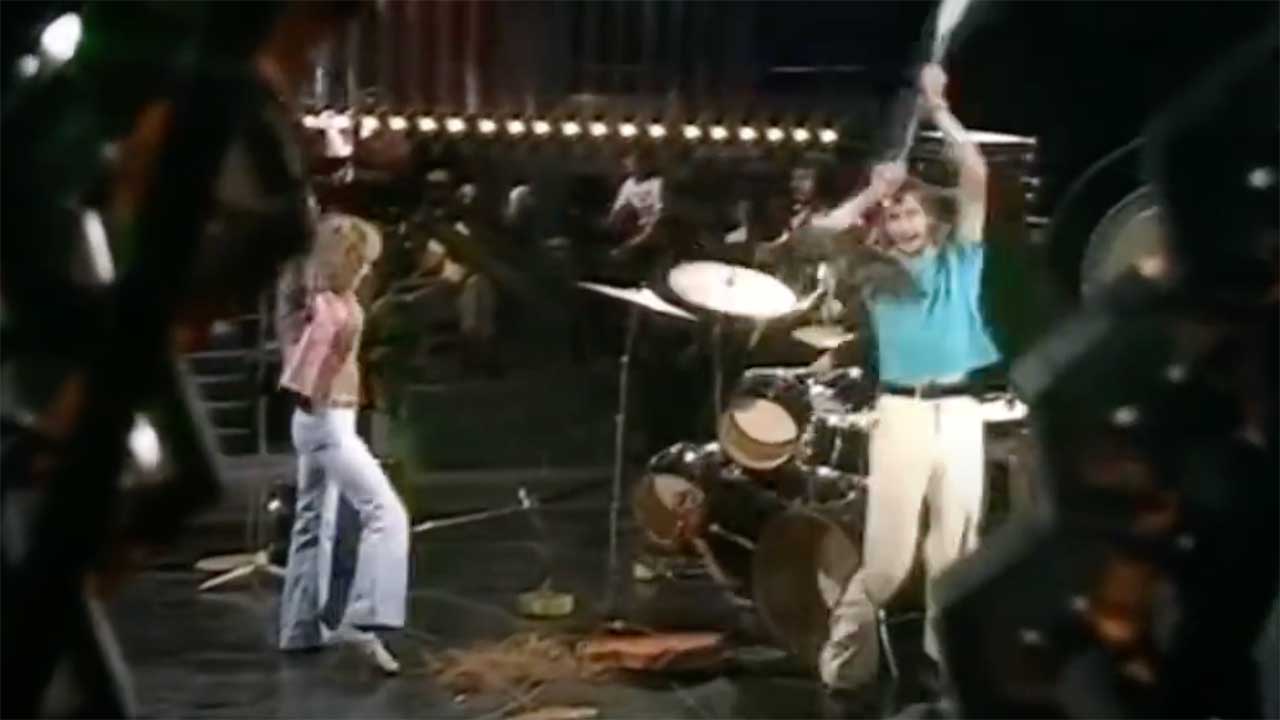On October 4, 1973, Top Of The Pops celebrated its 500th edition. The long-running UK show, which launched in 1964, was required viewing in a nation that only had three channels to choose from, so producer Robin Nash pulled out all the stops.
To follow CCS – the Alexis Korner-led group whose version of Led Zeppelin's Whole Lotta Love had been the show's intro since 1970 – Nash booked The Sweet, Bryan Ferry, Cliff Richard, Tony Orlando and Dawn, Lyndsey De Paul, David Cassidy and the Simon Park Orchestra (at #1, with the theme to ITV crime drama Van der Valk). And, for a fee of £100, he booked The Who.
The band's new single was 5:15, from the Quadrophenia album, which would be released later that month. Previous single Relay – a non-album track from guitarist Pete Townshend's unfinished Lifehouse project – hadn't hit the Top 20, so the band were keen to get back on track, but they immediately ran into problems.
In 1966 the Musician's Union had demanded that bands play live on the show, but after a series of performances that clearly demonstrated the shortcomings of several players, a compromise was reached. A band's singer could lip-synch, and the other musicians could mime, but only to a newly recorded version of the song's backing track. Theoretically, artists were required to record the new version in the presence of representatives from both the Musicians Union and the BBC.
Townshend didn't like the ruling. And three years earlier, he'd written a column for Melody Maker headlined 'TV miming: who is being fooled?', in which he made his position clear. "The TOTP team feels cramped by the restrictions," he wrote, "and artists like ourselves that spend weeks in recording studios at fantastic expense, don't feel like going through it all again to get a plug on television."
He went on: "I believe that my union, the Musicians' Union, is misrepresenting me, making rules that make me have to rerecord my own music each time I appear on television with no advantages to anybody at all. Not even studios gain by this re-recording, we have our own. It's absurd."
But The Who had to adhere to the rules. So on October 2 they went back to Ramport Studios in Battersea, where Quadrophenia had been recorded, and taped 5:15 again. And then, on the following day, they travelled six miles north to the BBC's Television Centre to film Top Of The Pops.
The Who's performance is introduced by Noel Edmonds, and proceeds amicably enough, but as the song nears the final fade Townshend demonstrates his displeasure.
It's carnage. He kicks over Keith Moon's kit and tosses a cymbal into the wings, and smashing his own guitar. Moon joins in, and it all ends with Townshend flicking the Vs in the direction of Robin Nash as several wigs (presumably purloined from the BBC's props department) are tossed back at him. Meanwhile, frontman Roger Daltrey and bassist John Entwistle continue as if nothing's happened.
Viewers watching the broadcast the following night could be forgiven for thinking that nothing beyond the ordinary had happened at all, as the BBC edited their footage so that Townshend's offensive gestures weren't seen. The Who's own footage of the event eventually emerged on the rockumentary The Kids Are Alright, where it was played over the end credits.
The Who subsequently received a lifetime ban from the BBC, which was lifted after the band's management wrote a letter of apology. And by 2007, when Daltrey and Townshend were interviewed on the same channel's Later... With Jools Holland, the singer couldn't even remember why they'd been banned.
"I think... I don't know," he says, clearly struggling to recall the detail. "Keith Moon was trying to knock [Top Of The Pops host] Tony Blackburn's wig off with his drumsticks, or something."

